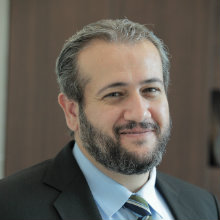June, 17, 2021

The COVID-19 crisis can be an opportunity for Sri Lanka to push forward policies that will enable the country to build back better with stronger measures to attract much-needed Foreign Direct Investment (FDI).
Faris Hadad-Zervos, World Bank Country Director for Sri Lanka, Nepal and Maldives speaking during a panel discussion at the virtual Sri Lanka Investment Forum 2021 organized by the Ceylon Chamber of Commerce (CCC) last week focused on the importance FDI plays in Sri Lanka’s post-pandemic recovery and future economic growth.
He pointed out that Sri Lanka is capable of meeting its goal of attracting $5 billion FDI by 2025. Higher levels of FDI would also strengthen exports, foster growth and assist the country to put its debt on a more sustainable footing.
“We believe this is entirely doable given the country’s rich natural resources, strategic location, highly literate workforce and opportunities for investment in tourism, IT enabled services, logistics, high value-added apparel and food services among others.”
However, for Sri Lanka to leverage on these competitive advantages Mr. Hadad-Zervos called for the country to focus on comprehensive reforms to increase productivity and competitiveness.
“The Government needs to set in place a collective set of policies and practices that make up an investment ecosystem, ranging from improvements of the investment climate, elimination of unnecessary regulatory burdens to enhancing predictability of laws and responsiveness of bureaucracy to deliver effective FDI services,” he told the online gathering. “What we have seen in other countries is that investment promotion is the beginning of the game and not the end. The name of the game is attracting and retaining efficiency seeking FDI.”
Sri Lanka is currently placed 99th in the latest Ease of Doing Business rankings compiled by the World Bank. Mr. Hadad- Zervos pointed out FDI has a huge role to play in helping Sri Lanka leverage its potential and diversify its export and investment sources. Many Sri Lankan companies have already tapped into this opportunity and have become global players in multiple markets.
The Country Director called for policy makers to focus on export earnings in comparison to overall GDP and track its growth consistently to identify what policy changes are needed to improve competitiveness and reach. He also advocated for a fresh look at tariff systems and improved access to intermediate imports needed for export value addition.
“Where can policy makers create an equal system to tap into this innovative drive in the larger existing manufacturing sectors, such as apparel and entrepreneurial dynamism in niche sectors such as ICT and high tech products to fully harness Sri Lanka’s competitive advantage and integrate further into the global value chain? These sectors have scaled up with the latest outside technologies and experiences for the potential to drive Sri Lanka’s transformation.”
In the short-term Sri Lanka, much like many other developing countries around the world, will also face a challenging balancing act between maintaining fiscal sustainability and jump-starting economic recovery.
“Sri Lanka should use the pandemic to churn challenge into opportunity, to tackle the fundamental core issues that existed before COVID-19 to build back better, greener and with more agility.”

Video Story